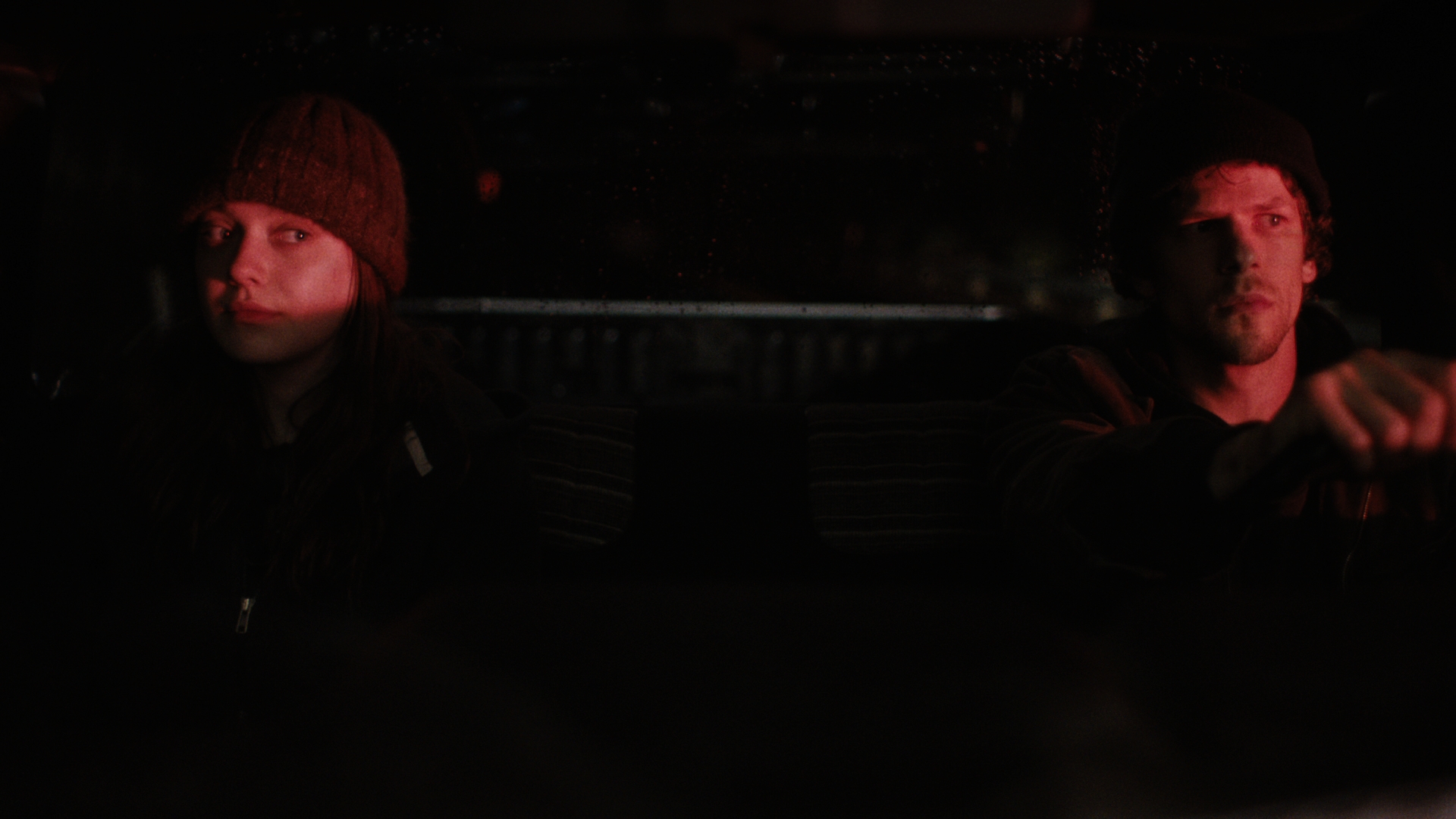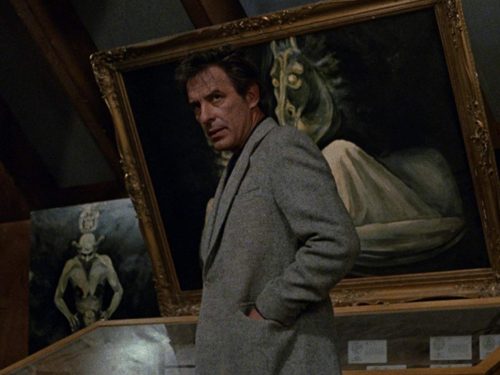Too conventional for some and too elliptical for others, Kelly Reichardt’s Night Moves is too often dismissed as a lesser entry in its director’s impressive filmography
Few contemporary directors as acclaimed as Kelly Reichardt have contended with quite so many misapprehensions and misinterpretations. Even the one great exploration of her work that I’ve found can’t help but address this fact. Writing for Cineaste, Jason Michelitch spends several paragraphs cataloging the ways in which prominent critics have dismissed Reichardt’s work outright or, in praising it, betrayed an insufficient appreciation of its wonders. Some of the problems stem from a lack of imagination. “Reichardt’s accumulated experiences,” Michelitch writes, “are made up of hundreds of tiny flickering moments of transformation.” When these aren’t immediately obvious, even seasoned critics are often left with nothing more than “minimalist plots and technical craft” to orient themselves. They begin to discuss the films in purely reductive terms, clarifying only what they aren’t, what their characters fail to articulate, and what conventional pleasures Reichardt neglects to offer. All too often these writers become lost and wind up relying on “pre-chewed categories of genre and isms” to get their analyses back on track and help them reach their word counts.
That even Reichardt’s ardent fans often miss the point has never been clearer than upon the release of Night Moves. The film premiered in 2013 and follows a trio of radical environmentalists who plan, commit, and attempt to live in the aftermath of an act of terrorism: blowing up a dam on an Oregon river, just one of hundreds that, to paraphrase the film’s leads, is killing scores of salmon to help run iPods and keep Bend’s abundance of golf courses green. Critics hungry to continue chewing on conventional wisdom while professing a taste for Reichardt’s work must have salivated at the synopsis and its promise of digestible thrills. A positive write-up in The Guardian, for example, is continually cheapened by the kind of genre reductionism that Reichardt has so expertly defied since her feature debut. What exactly is Night Moves? Well, according to The Guardian’s chief critic, it’s a “thriller that behaves as if it is a gentle, indie-arthouse film,” of course — whatever the hell that means. According to a B+ TIFF dispatch from Indiewire’s Eric Kohn, the film was, as of 2013, Reichardt’s “most accessible film to date.” This despite the fact that it “frequently takes the form of an anti-thriller.” That term is as reductive and meaningless in the context of Reichardt’s film as “anti-hero,” another pre-chewed cliche employed in the name of mild praise by a critic who nevertheless chides Night Moves for its second-half forays in to what he calls “cliched territory.”
No less than Jonathan Rosenbaum calls Night Moves both “impeccably realized” and his “least favorite” of Reichardt’s features — that backhanded compliment at least implies just how consistently excellent Reichardt’s films have been. At first, his 2020 career overview ecstatically supports a thesis not unlike Michelitch’s, that confidently inhabiting Reichardt’s worlds first necessitates a process of “discovering how not to watch” her films. He too argues that far too many critics have neglected to embark on this process of discovery or regularly wander off course in their attempts. He calls out several of the same “journalistic shortcuts” as Michelitch, most notably ahistorical terms like “slow cinema” and the facile comparisons between Wendy and Lucy and the work of Vittorio De Sica favored by eminent New York critics. Hindsight’s vantage has not, however, given Rosenbaum any more insight into Night Moves than most of its contemporary audiences had. Affording the film just a single paragraph, he offers the familiar mix of measured acclaim and dismissal you’ll find across its Rotten Tomatoes page. Reichardt’s films have never been a hit with multiplex crowds, but it’s telling that her “most accessible film,” a film Rosenbaum characterizes as “conventional and predictable” and “an effort to do something commercial with popular young stars,” managed a dismal 41 percent Audience Score from more than 10,000 reviews. In general, everyday and professional audiences rejected and continue to reject Night Moves for at least one of three reasons:
- It fails to meet the expectations established by its genre
- It fails to meet the expectations established by its director’s previous films
- Its second half fails, in one way or another, to meet the expectations established by the first
Rosenbaum admits to a fourth layer of puzzlement, the result of Night Moves’ failure to adequately justify sharing its title with the 1975 Arthur Penn film. That title is probably the film’s most daring gesture and the surest sign of Reichardt’s interest in exploding audience expectations.
Misunderstanding of Reichardt’s work in general and Night Moves in particular reaches its apotheosis in David Denby’s discussion of the film for The New Yorker. The piece is at once a mostly positive reaction to Night Moves, a hopeful reflection on Jesse Eisenberg’s ascendant career, a one-paragraph dismissal of Richard Ayoade’s The Double (2013), and a predictable journey into familiar arguments. Like a troubling number of his peers, Denby can’t help but spell out how much he wishes Kelly Reichardt had offered something fundamentally different by, well, spelling it out and having her characters do the same. Michelitch writes, “there is no rhetoric in her films,” recognizing that this fact is at the heart of Reichardt’s excellence as a filmmaker. Denby, for his part, appears directionless without rhetoric. That Josh (Eisenberg), a near-silent commune resident, Dena (Dakota Fanning), a wealthy New England transplant, and Harmon (Peter Sarsgaard), a black-pilled veteran who lives out in the woods and, ironically, finds employment as a greenskeeper, “are motivated by sentiment, rather than ideology” strikes him as incongruous rather than in keeping with Reichardt’s approach, her career’s worth of films that, per Michelitch, “do not communicate ideas so much as they embody ideas in experience.” Denby asks the reader, “how can such virtuous types, who grow vegetables and hang wind chimes together, turn to violent destruction?” His analysis and second-person Kael affectations reach the limits of their usefulness when he remarks, “you long for Eisenberg to explain himself;” I sure didn’t. Maybe he slept through the film’s tense first half, which, even without much rhetoric, does plenty to explain why Josh at least doesn’t opt for more peaceful forms of protest.
Related: You Can’t Get The Milk For Free: Kelly Reichardt’s First Cow by Bennett Glace
Like all of the films in the “third phase” of Reichardt’s career, Night Moves takes place in a world between wilderness and civilization, where the natural and constructed spheres exist in a state of war disguised as an uneasy alliance. Old Joy (2006), Reichardt’s second feature and first major critical success, kicked off this acclaimed phase and established this conflict. It serves, Michelitch notes, as “something of an urtext” for the worlds she has come to create. In its pair of central characters, begrudgingly settled Mark (Daniel London) and unsteadily nomadic Kurt (Will Oldham), it also presents a pair of molds for what will become the quintessential Reichardt lead, a character attempting to travel the line between these worlds and occasionally, circumstances permitting, to straddle it. Nearly every moment in the film affirms or reaffirms the struggles inherent to this attempt. In introducing Mark, Reichardt immediately makes plain what a precarious in-between space he’s occupying. As he settles into meditation, the steady gong of a standing bell is subtly underscored by the sounds of nearby children and passing cars. Suddenly, the mechanized whir of a blender breaks our concentration and introduces us to Mark’s wife, Tanya (Tanya Smith). Though Mark attempts to eliminate distractions outdoors, she uses the blender and radio simultaneously to create a distinct domestic soundscape that’s as comforting to her as it would be cacophonous to Mark. The unease with which Mark occupies this setting becomes all the more clear when Kurt comes calling. Kurt still lives mostly within the past he and Mark shared, a past Tanya is evidently happy (or at least content) to have moved on from. There’s a reason we don’t see or even hear her again, her definitive settlement within the milieu of the opening sequence would make her an odd fit in a Kelly Reichardt film.
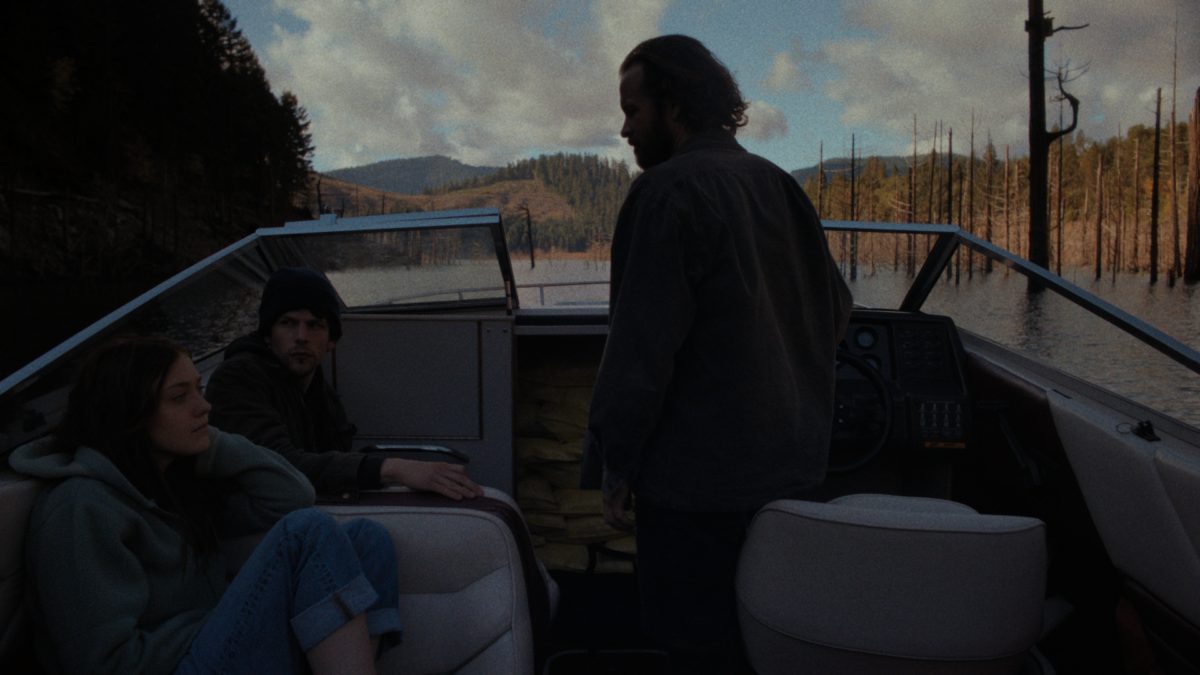
Kurt and Mark’s directionless conversations throughout their trip remind us that, while they’re both living uneasily in muddled circumstances, they don’t have much in common anymore. However unsettled, Mark has definitively traded activism for Air America and retreats in Ashland for the occasional road trip. When Kurt recalls a reunion with a long-lost friend around a bonfire in Big Sur, Mark can only remember the acquaintance as someone who still owes them both rent. When Mark describes his father’s brain cancer diagnosis and some recent surprising behavior, Kurt responds with a strange, faux-mystical attempt at reassurance, “It’s kind of like when an old Eskimo goes off to die alone.” Mark’s perplexed, wordless glance communicates more than a long exchange about grief and outdated ethnic terminology possibly could. That’s not Kurt’s only bit of would-be wisdom that strikes a strange chord with both Mark and the viewer. Mid-way through the film, Mark and Kurt accept that they’re almost hopelessly lost and settle in for a night of camping. Making small talk, Mark articulates a sentiment right out of the suburban roadtripper’s handbook, “It’s good to get away from the city. I forget all this is out here.” Kurt’s response belies his evident unease while outlining what will become a central tenet of Reichardt’s films and characters, he articulates the articles of war between nature and civilization better than anyone:
“It’s not like there’s any big difference between the forest and the city though. Know what I mean? It’s all one huge thing now. There’s trees in the city and garbage in the forest. What’s the big difference?”
We understand that Kurt, whatever he says, feels deeply disturbed by the ways in which these worlds have blended and deeply disappointed by the ways in which he has failed to comfortably blend them in his own life. He shortly makes this second point more explicit, “There’s something between us . . . and I don’t like it.” Whatever moment of reconciliation they arrive at once they’ve reached the Bagby Hot Springs is left mostly, provocatively, unseen. The film’s last frames, depicting the friends’ diametric circumstances, are more direct and seem to solidify the impossibility of ever fully reconciling these sometimes-overlapping worlds. For Reichardt’s central characters it’s not only impossible to occupy both at once, but to live within even one of them comfortably. Her films all take different paths in reaching effectively that same conclusion.
Michelitch posits that Reichardt’s best film, Certain Women (2016), is a kind of response to Old Joy, “a semantic reversal that nevertheless extends and expands the same territory.” I think Night Moves, often dismissed as an outlier, the one time Reichardt has gone astray, presents a more striking response and reversal, though it finds her working on an even more constricted canvas than in Old Joy. Like that film, it catalogues a reunion between two characters who go on a journey together (this time, Josh and Harmon). This journey is about destruction rather than discovery, and we’re placed almost entirely within the perspective of just one character: the taciturn, contemptuous Josh. Even when the camera leaves Josh’s side, as it does during Dena’s suspenseful trip to the feed factory in search of conspicuous amounts of explosive ammonium nitrate, the events on screen, the soundscape, and the rhythm of Reichardt’s filmmaking keep us squarely within his blinkered and increasingly paranoid point of view. We know about her intentions, and even still an employee’s terse kiss-off, “Nope, we don’t have it,” sounds strange, the kind of worst case scenario that Josh, always looking over his shoulder, might envision. Later on, one long shot in particular, looking out through the windshield of an RV appears to briefly place us alongside the exact sort of people Josh is hoping to shock into awareness, an elderly couple who’ve made this trip from the city to the forest only to spend it watching a game show from their vehicle. A subsequent long shot, children playing in a shallow section of the river complicates things, suggesting perhaps growing unease and uncertainty on the part of Josh and his partners in crime.
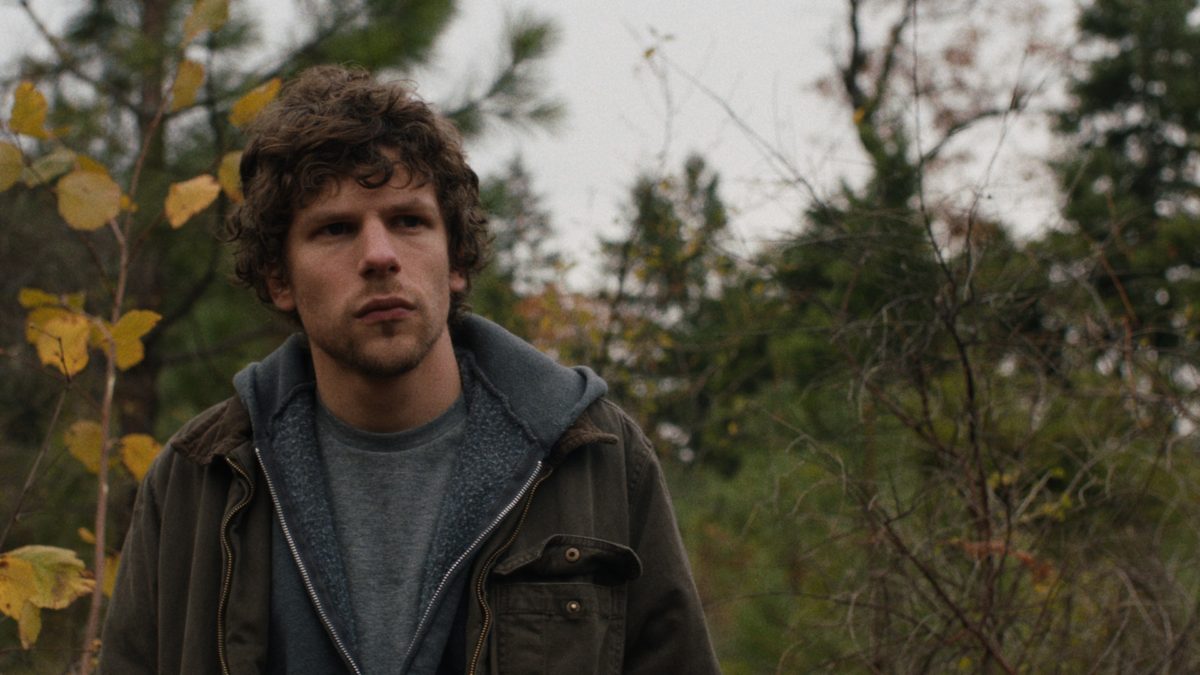
The aforementioned Guardian critic also shows his commitment to tired convention by intuiting a potential “romantic entanglement” between Dena and Josh. It’s certainly true that a more conventional filmmaker might have chosen Dena as the audience’s primary surrogate. She’s a relative outsider among the film’s trio of terrorists. Harmon repeatedly expresses surprise and suspicion regarding her role, and her position on the grid appears the most secure; she discusses environmental causes with the most fervor, expressing skepticism toward would-be activists and regularly citing statistics; she’s the most conventionally sympathetic as well, literally wearing her guilt over the fateful deed as an itchy, red rash. Reichardt is, however, as even the most rudderless of critics recognize, not at all interested in ceding to convention or comforting her audience. What’s more, observant viewers of Reichardt’s films, Old Joy in particular, should immediately recognize both that Josh is a prototypical Reichardt lead and that his relationship with Harmon is far more charged with unspoken tension and unrequited affection than his more antagonistic one with Dena. Josh’s final desperate phone call to Harmon, the best piece of acting I’ve ever seen from Eisenberg, is even more heartsick and hopeless than the fireside plea Kurt makes to Mark. After he’s been kicked off his commune and murdered Dena for fear of discovery, he dials Harmon. As Josh explains himself, how Dena “quit on them,” Reichardt cuts to his nervous hands gripping the steering wheel. It’s an echo of a shot from before the explosion, Josh’s empty hands after he overhears Harmon and Dena having sex and walks off by himself. Then, he makes his overture:
“I was thinking maybe you and I could go somewhere, like, kind of quiet, like, just out in the middle of nowhere or something. I got a lot of stuff and I could come and get you. I can come and get you, you know? I don’t know where you are.”
Harmon doesn’t take him up on the offer. “You got to get real lost now,” he replies, “You got to get real lost and stay lost.” Josh’s response, while more or less wordless, suggests that the dissolution of this relationship has upset his already fraught existence more than even the weight of his crimes, the ostracization of his community, or the threat of arrest.
Related: People in the Sun: Kelly Reichardt’s Meek’s Cutoff by Brett Wright
Jesse Eisenberg’s performance style is at once narrow and deep; he makes a natural fit in Reichardt’s world. Both are artists of deceptive simplicity whose work, even at its most masterful, is all-too-easily dismissed by audiences looking for familiar signposts. Applauding him, Denby can’t help but make Eisenberg a victim of reductionism and received wisdom like Reichardt, placing him somewhere on the Richard Dreyfuss side of the “smart-boy Jewish movie actor” continuum. There’s no doubt that Denby appreciates Eisenberg’s gifts, maybe even the full extent of them. Reichardt’s deft use of them, however, appears to go unnoticed. He’ll acknowledge that Reichardt has developed “an impressive control over the medium” and go even further in championing Eisenberg — “even his silences are eloquent.” What he can’t do is bridge the gap between these two statements and recognize that only a director with such an impressive control of her medium could successfully reject rhetoric so thoroughly; only a director who has rejected rhetoric could command performances of such eloquent silence.
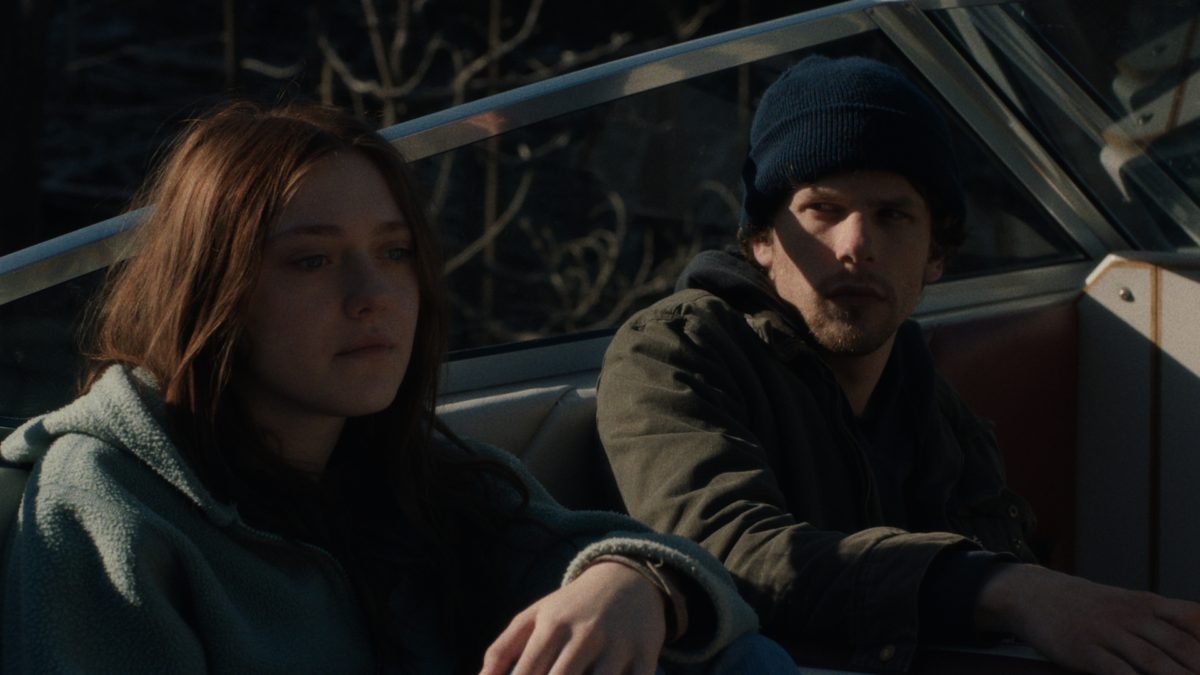
Josh’s silences throughout Night Moves are occasionally eloquent in their anxious ineloquence, their ability to reflect the unease consistent among Reichardt’s characters. Sometimes they’re practically explanatory, clueing us in to the petty motivations that were unsatisfying to some critics and, somehow, invisible to others. Besides the conversations Josh, Dena, and Harmon have on their first night together (which maybe put too fine a point on it), these contemplative and contemptuous glares offer the film’s clearest articulation of why a man who rescues a fallen bird’s nest and stops his car in hopes of reviving a doe on the roadside would turn to terrorism. There’s no mistaking the glare he holds on Dena as she walks into the steam of a New Age spa. The following shot, Josh doodling a Hitler mustache on the brochure face of some guru, makes things even clearer, again arguably putting too fine a point on it. Were critics really unsure about his motivations? Maybe they were offended by the notion that suburban excess and New Age bullshit are at least as galling as the encroachment of industry and that all three are fundamentally connected. More likely, they missed altogether the suggestion that Josh believes this. Denby longed for someone to explain what exactly was going on in Night Moves, and I don’t suspect he was alone.
More subtle, and still artfully unsubtle, evidence of Josh’s motivation comes when Reichardt walks us through the kitchen, living room, and bathroom of one of his, Dena’s, and Harmon’s unwitting co-conspirators. He’s credited simply as Boat Owner and the vessel he sells Josh and Dena provides their scheme its most crucial component and gives the film its title. When Josh walks through his home to use the bathroom, the camera doesn’t pause, but pans deliberately enough that, like Josh, we can observe the ease with which this suburbanite has established a life that, to him at least, is situated comfortably between what Kurt called the forest and the city. He’s someone who fancies himself a nature lover while reveling in the reckless use of resources, an avatar for the creeping development decried by the central trio. Thanks to our time in the spa, we can recreate Eisenberg’s not-quite-subtly contemptuous stare and complete our own mental shot-reverse-shot. Out in the backyard, an expensive water feature combines the wasteful deluge of the dam and the commodified serenity of the spa. If that spa was a bougie bastardization of the Bagby Hot Springs, this is something even worse. On the television, a golf course presents still more evidence of the careless, excessive result of the forest and city’s coupling. Once Josh reaches the bathroom, the camera communicates the transition from pure disgust back to paranoia. A tilt up to the window suggests Josh’s ears perking up as Dena gets a little too friendly with their mark. She builds an unnecessary backstory that immediately threatens to expose them. It’s not exactly realistic that Josh would hear the exchange through a closed window, but the suggestion of superpowered hearing is of a piece with an earlier bit of sound design that accompanies another one of the rare moments we spend with someone other than Josh. We enter the commune Josh calls not-quite-home alongside another resident on their bike. The accompanying score interpolates elements from the muzak that plays throughout the spa. The very existence of a place like this spa, it seems, weighs on Josh’s mind and has perhaps cheapened, if not totally poisoned, places like the commune and experiences like his daily life on it.
After Josh surreptitiously returns post-explosion, Reichardt repeats the mortified pan, this time reversing its direction and placing us within the round, multi-person space where he sleeps. He’s just as troubled here as in the suburbs. As news of the explosion spreads, Josh’s guilt, in both senses of the word, becomes more obvious. Jerking his head like a startled animal at the sound of approaching cars and taking a surprising number of important phone calls, he leaves little doubt as to his role in the crime or the likely death of a camper who’s gone missing in the aftermath. Josh’s compatriots on the commune are evidently more perceptive than the critics who wondered as to his motives; they recognize his role in the explosion almost immediately. Again, the behavior of other characters appears exaggerated, reflecting perhaps the intense paranoia of Josh’s skewed perspective. The icy treatment he gets in the kitchen, from characters including Katherine Waterston’s Anne, is as unsubtle as his newly jumpy demeanor.
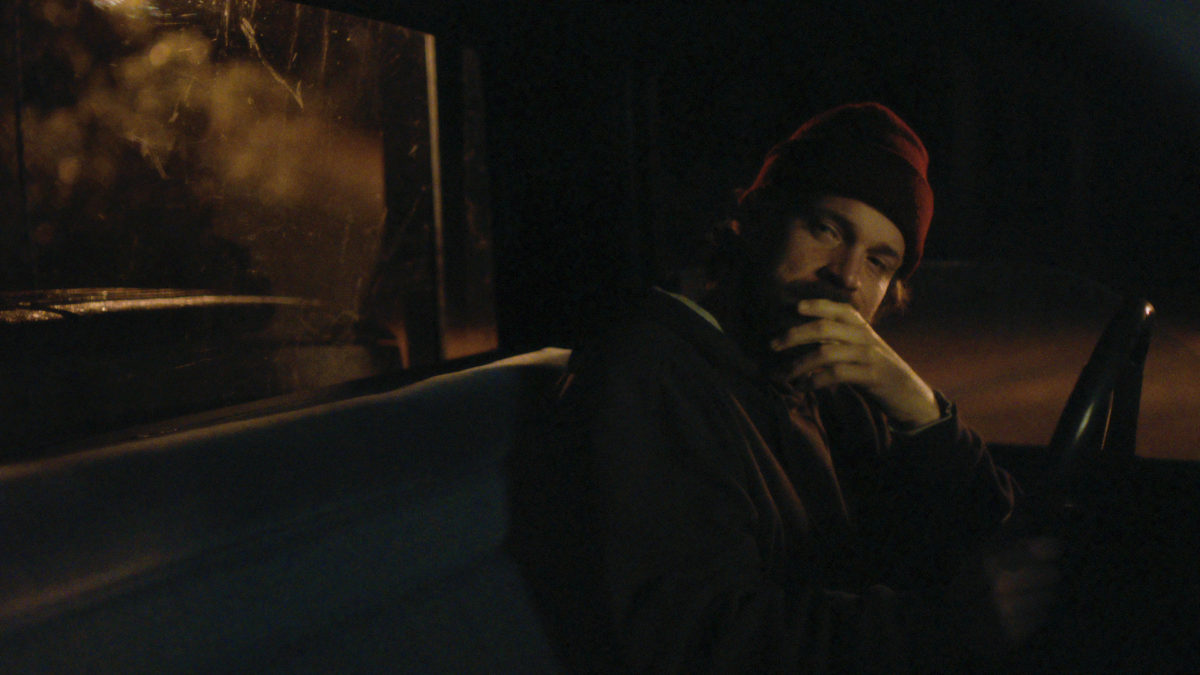
****
When I spoke to Joel Potrykus last January he expressed affection for Reichardt’s films and even a conscious desire to imitate her. I wasn’t surprised that a great filmmaker would admire another, yet I struggled to see Reichardt’s influence on Potrykus’ quartet of features. Watching and rewatching Night Moves finally made it click. For all her associations with the Pacific Northwest’s forests and waterways, Reichardt is as much a poet of the strip mall and suburban plot as Potrykus is. Both center their films on protagonists who are eager to transform these spaces if not escape them altogether: a vagabond fleeing to Alaska, an amateur alchemist attempting to summon a demon servant, an out-of-towner securing sandstone to build the perfect vacation home, a comedian who’ll sell his soul to make the big time, two friends trying to make their name and fortune together in the days of frontier capitalism. While doggedly committed, they’re only ever fitfully successful in changing their circumstances (or even articulating how they’d do so if they could) and what victories they secure are never uncomplicated. The vagabond gets out of Oregon but loses her dog; the out-of-towner gets the sandstone but loses her family before the film’s first frame; the alchemist and comedian get brief moments of joy but seemingly lose everything soon afterward; the two frontier friends meet the same end.
Of Potrykus’ distinct lead characters, Josh most calls to mind Marty Jackitansky (Joshua Burge), Buzzard’s (2014) mercurial and maladjusted schemer. Marty’s attempts to subvert the system with petty scams only serve to strengthen the system’s hold over him; trying to secure refunds places his name and number on a list in “the system” and an ominous “system” threatens to expose his more ambitious efforts to sign over checks to himself. Josh also finds himself thwarted by the system, consumed by it, despite and because of his efforts to destroy it. His journey ends in a location akin to the Walgreen’s that hosts Wendy and Lucy’s (2008) central drama and any number of sequences from Potrykus’ filmography. Following the tearful call with Harmon, who we never see again, Josh ditches his phone and enters a sporting goods store to carry out what may as well be a suicide attempt. Reichardt again pans with what could be outright disgust and is certainly a combination of both disdain and distress. Tents and other camping equipment aren’t just indicative of the ways in which the worlds of the forest and the city have blended, to the detriment of both, but a reminder of the camper Josh’s actions probably killed. Several colors of sleeping bags loom before Josh, massive and inscrutable as Rothko smears. He ultimately opts to follow Harmon’s advice in an unusual way, getting lost by becoming definitively found. He secures a job application and prepares to very literally put himself in the system and secure a place on the grid. The final shot, two shoppers in an overhead mirror, looking down at their cell phones, is far bleaker than the ending of Old Joy and maybe at least as bleak as the ending of Meek’s Cutoff (2010). Josh is fated to fear pursuit for the rest of his life and doomed to reside among the community he derides, a population so diverted by perks like “taxidermy, gourmet food, and $8 coffee” that they can’t even recognize a killer in their midst, let alone pick up their heads and take action against environmental destruction.
Stream Night Moves on Kanopy or Amazon Prime.
Purchase Night Moves on Blu-ray
Stay up to date with all things Split Tooth Media and follow Bennett on Twitter
(Split Tooth may earn a commission from purchases made through affiliate links on our site.)

